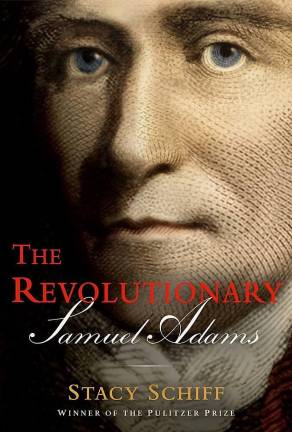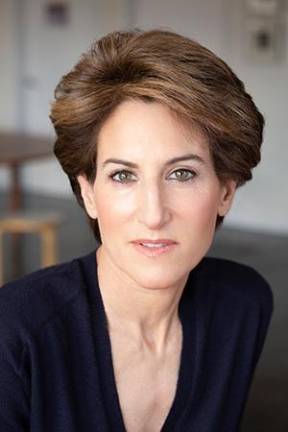A Pulitzer Historian Has Another Winner
Stacy Schiff’s ‘The Revolutionary’ takes us on a ride with Samuel Adams


She has spent years researching, and then giving readers fascinating takes on, people like Cleopatra, the Salem Witches, and the wife of Vladimir Nabokov. And now, Stacy Schiff, Pulitzer Prize winning historian (for that Nabokov one in 2000), is taking us on an historical ride with Samuel Adams. The Wall Street Journal calls “The Revolutionary” a “tour de force.” And they point out that when Paul Revere set out on his own ride to warn that the Redcoats were coming, it was Sam Adams whom he most feared losing.
Schiff takes her choice of subject very seriously, as she spends several years immersing herself in their lives. “Generally, someone slips in when I’m not looking,” she explains, “making him or herself at home, and then they become an obsession. No two subjects have arrived by the same means. Only later do I tend to see that they align with questions that resonate.”
The character most of us knew as that sexy Egyptian Queen portrayed by Liz Taylor, ultimately meant more to Stacy Schiff. “Cleopatra came up when someone asked, at the dinner table, what she did all day,” the author recalls. “I kept wondering if you could actually write a life of Cleopatra despite the lack of documentation. What did the ancient world make of a powerful woman?”
Schiff also spent several years exploring Ben Franklin’s life and work in Paris, which simultaneously gave her a taste of Founding Fatherhood. “Sam Adams had a cameo in the Franklin book, but I knew next to nothing about him,” she says. “We know infinitely more about his cousin John,” who was vain, hungry for greatness from a young age. Samuel was modest; decidedly unambitious; and so unconcerned with history that he resisted John’s pleas to so much as collect his newspaper pieces.”
The Country’s Current Mood
Samuel Adams’ modesty — and John’s sense of history in the making — ultimately led to enough material for Schiff’s latest. “To some extent, Samuel was covering his tracks,” she explains. “You don’t want to leave fingerprints when you’re fomenting rebellion. No scene in his story so much breaks the biographer’s heart as John’s description of Samuel cutting bundles of letters into shreds and feeding them to a Philadelphia fire, to protect his colleagues. The good news is that John left some priceless descriptions of his cousin.”
The country’s current mood also swayed Schiff’s latest choice. “Our politics felt toxic, so I think I was looking for someone who had not only rerouted history but who operated from a sense of deep moral purpose,” she says. “I had just spent five years writing about Salem witchcraft, a period which sent all protest, all reason underground. And we have all been thinking overtime about the origins of democracy.”
Samuel Adams may seem the ideal subject for the moment, but Schiff admits few biographers find that person. “The ideal subject?” she laughs. “Legible penmanship; plenty of living witnesses, an archive a short drive from your front door, and colorful misadventures.”
Her style is often compared to that of Doris Kearns Goodwin, making history feel vibrant and even contemporary. Her fans are legion, including among others who do similar work. Kai Bird, Executive Director of the Leon Levy Center for Biography, says, “Stacy is a stellar figure in the world of biography. Her books sing and inspire readers to dive into another life. But what is particularly astonishing about her work is that she is so versatile.”
Another fan, historian and journalist Jonathan Alter, adds, “Stacy does something quite unusual, which is to combine deep scholarship with great narrative skills that pull in people who don’t usually read much history. And she’s a charming person with a vital presence in New York.”